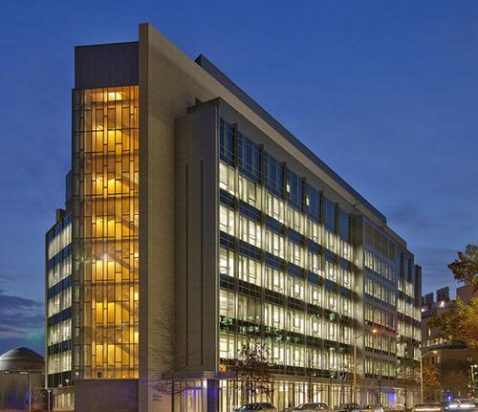
Research Centers

MIT conducts interdisciplinary research to address societal issues and advance knowledge globally. To support researchers working across disciplinary and organizational boundaries, MIT has established a network of labs, centers, institutes, initiatives, and programs. Here are the research centers led by BE faculty.
The Division of Comparative Medicine (DCM) is a free-standing academic unit that reports directly to the Associate Provost and the Vice President for Research. Originally created in 1975, the Division’s missions include: the veterinary care and maintenance of animal health for all animals used in biomedical research at MIT, diagnostic laboratory services, biomedical research funded by NIH and private industry, and post-doctoral training in biomedical research.
The MIT Center for Multi-Cellular Engineered Living Systems (M-CELS) is a multi-disciplinary group of researchers across MIT studying purpose-driven living systems with multiple interacting living components. Established in 2020, Center researchers engineer living systems for specific goals or functions, taking emergence into account during the design process, allowing the final system to emerge through natural and non-natural biological processes. M-CELS research is intended to provide a fundamental engineering understanding that enables a quantitative approach bridging between single cells and organs or organisms.
The MIT Center for Environmental Health Sciences (CEHS) is an intellectual hub of multidisciplinary researchers studying the biological effects of exposure to environmental agents. Funded by the National Institute of Environmental Health Sciences, the research focuses on how the nature of the exposure, the duration of the exposure, and the genetic susceptibility of the exposed organism affects the health outcomes. Established in 1974, CEHS has been at the forefront of environmental health research in the country and in the world.
The MIT Center of Gynepathology Research (CGR) utilizes biological engineering techniques to understand the biology, physiology, and pathophysiology of the female reproductive tract in a collaborative environment with biologists and clinicians. Established in 2009, CGR performs tissue engineering and systems biology studies to understand disease function as well as clinical studies to understand disease origin and progression. In addition, the center focuses on developing new technologies for diagnosis and treatment of these diseases.
The Center for Microbiome Informatics and Therapeutics (CMIT) is a New England regional center to advance the science of the human microbiome and the treatment of conditions and diseases associated with an altered microbiome. The center will focus on supporting the intersection of research, clinical practice, computational biology, and engineering. Located at MIT, with co-directors from MIT and Massachusetts General Hospital (MGH), the center is dedicated to fostering and supporting a research ecosystem involving the participation of hospitals, other universities, and research institutes in the region.
The MIT Center for Neurobiological Engineering (CNBE) brings together MIT’s unique, transdisciplinary set of engineers and scientists to tackle the challenge of understanding our complex nervous system. To that end, CNBE works to create next-generation tools for experimental investigation of the nervous system and to engineer neurons, neural tissue, and their interactions with cells, devices, and prosthetics. The goal of this endeavor is to help the neuroscience community at MIT and beyond to discover fundamental principles of brain operation, as well as new approaches to the treatment and diagnosis of disease.
The MIT Center for Precision Cancer Medicine (CPCM) is devoted to translational research to help the subset of patients who do not respond well to traditional therapies. By focusing on the use of drug combinations, CPCM investigators believe it is possible to significantly alter patient outcomes by determining the right combination of therapies for the right patients. In addition, the Center will concentrate efforts on innovative ways to give drugs, be it in time-staggered dosages, or formulations that target the therapy directly to the tumor.
Singapore-MIT Alliance for Research & Technology Biosystems & Micromechanics (BioSyM) brings together a multidisciplinary team of faculties and researchers from MIT and the Universities and Research Institutes of Singapore. BioSyM research deals with the development of new technologies to address critical medical and biological questions applicable to a variety of diseases. BioSyM aims to provide novel solutions to the healthcare industry and to the broader research infrastructure in Singapore.